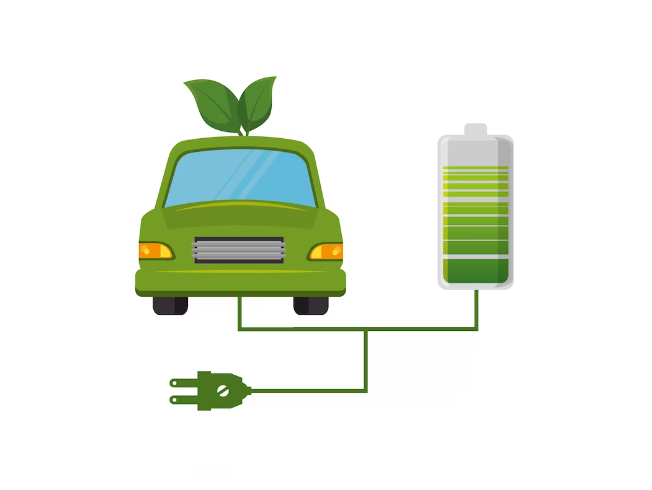Table of Contents
Introduction :
In the world of Vehicles, there are special machines called ‘Electric Vehicles’ or EVs. They are different types of regular vehicles/cars because they working on electricity instead of gas. They are like magical attributes that move gracefully, without making loud noises. The most important thing about electric cars are they are types of our planet. They don’t release harmful smoke or pollution like normal cars do. Due to this, they can help to keep the air clean and protect nature. Charging an Electric Car is easy. You can charge it right at home, just like charging your phone or tablet. At many locations public charging points are available for vehicle charge.
Electric vehicles/Cars may not have as long driving range as some gasoline cars. Some EVs can travel a long distance after one charge, while others might not go as far. As shown development in battery technology, the driving range of electric cars keeps getting better than previous. In the future, lots of people will start using Electric Vehicles to protect the environment and reduce bad greenhouse gases. Electric Vehicles are cars that run on electricity, not on gasoline. The main benefit of this technology is that, it can save Gas expenses and this is better for the environment. Due to this, Electric Cars are a better choice for a cleaner and bright future.

An acceptable replacement to traditional internal combustion engine (ICE) vehicles for resolving environmental and sustainability issues is the development of electric vehicles (EVs). As compared to traditional petrol or diesel cars, these modern vehicles electric motors and rechargeable batteries provide a cleaner, eco-friendlier option. Electric vehicles are increases the popularity day by day and changing the automotive industry as technology develops and concerns over climate change increase.
How Does Electric Vehicles Operates? :
• Battery of Electric Vehicle:
EVs have a large amount battery capacity which is used for EV for long distance travel.
• Charging:
Before you can use your EV, you must first charge its battery. This can be easily done at home by connecting it into a standard power socket or by using specialized charging stations. Some EVs even support quick charging at ‘supercharger’ stations, ensuring that there is no downtime.
• Electric Motor:
In this EV, the most important part is Electric Motor. When you push the accelerator pedal, the electric motor will start for running. It converts the battery’s electrical energy into the driving force that moves the wheels ahead.
• No Emissions, No exhaust system:
Compared to traditional automobiles, which release exhaust gases, but EVs are extremely clean. They don’t have an exhaust system, so they don’t emit any harmful gases into the atmosphere. Which great benefits to our atmosphere.
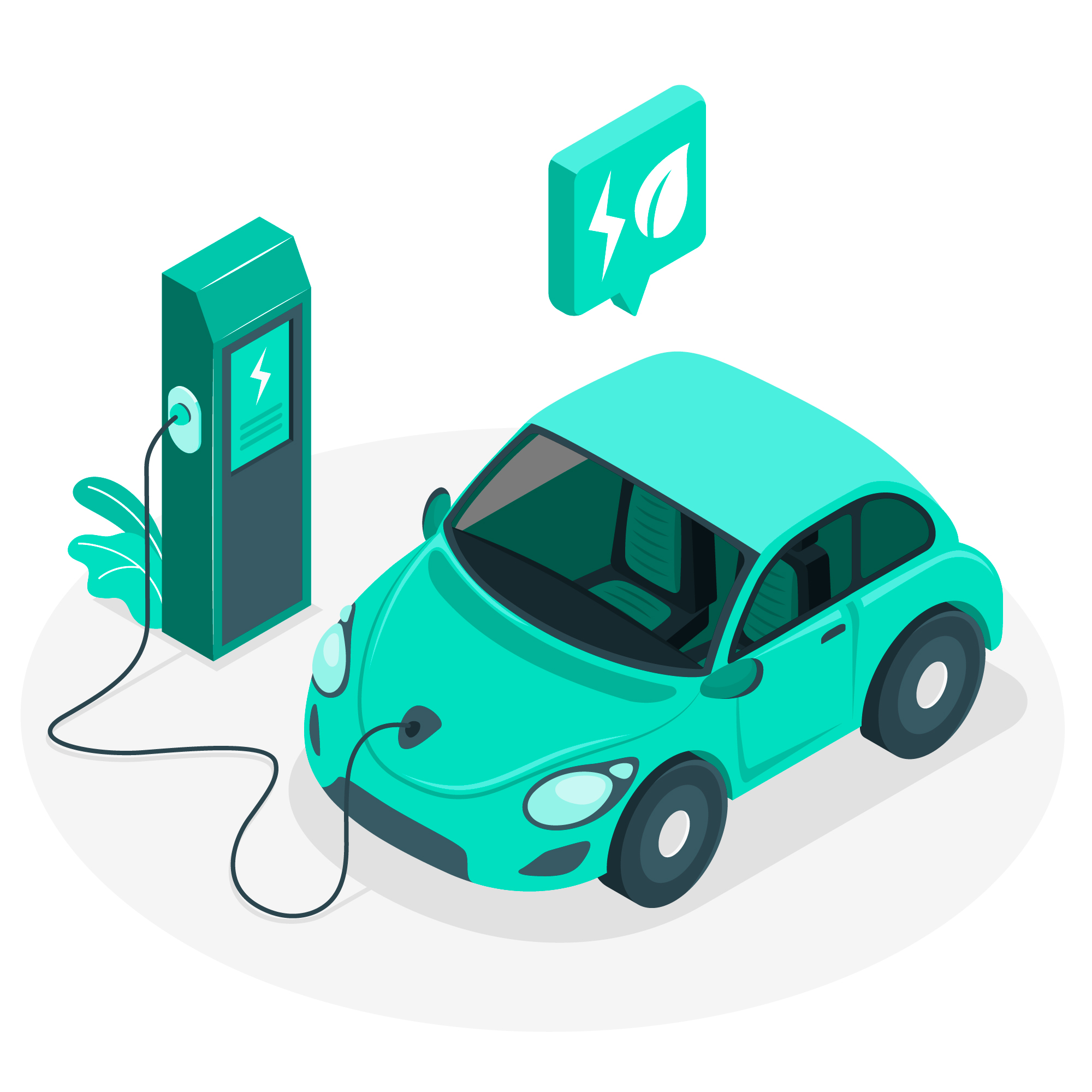
What Exactly Are Electric Vehicles?
- Electric vehicles (EVs) are automobiles, cars and even bicycles that run on electricity without fuels such as gas or petrol/diesel. Consider them the environmentally beneficial partners of conventional automobiles.
- The primary distinction is that EVs use huge batteries to store electricity, which is then used to power an electric motor, which turns the wheels. It’s like having your own massive, eco-friendly remote-controlled automobile.
- Electric vehicles (EVs) have built as a promising respond in a world where environmental issues are growing and the need for green transportation is greater than ever.
- It can run on electricity rather than gas, petrol or diesel, in that include automobiles, bicycles and buses. They are an advances in technology that provides a cleaner and greener transportation in the environment when also it creates a new world of exciting opportunities.
- These are automobiles that use electricity which stored in batteries to power an electric motor. EVs use electricity to generate motion rather than gasoline or diesel engines, which burn petroleum or diesel and emit dangerous gases into the atmosphere.
- These vehicles may be charged by connecting them into electric charging stations in the same way that you would charge your smartphone or laptop.
The increasing Popularity of Electric Vehicles
The demand of EVs are increasing day by day than previous years. Customers are looking for cleaner, more suitable alternatives to typical gasoline-powered cars due to concerns about air pollution, climate change and the lots nature of oil and gas. This is more than a trend, it is a transformation in the making.
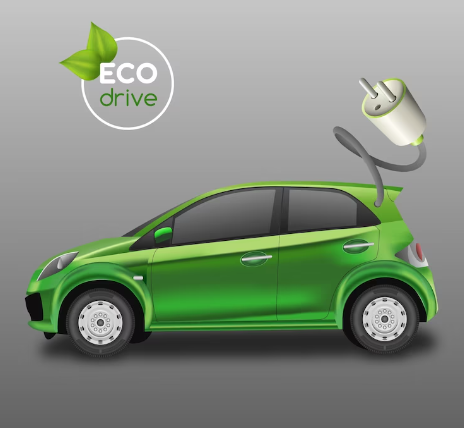
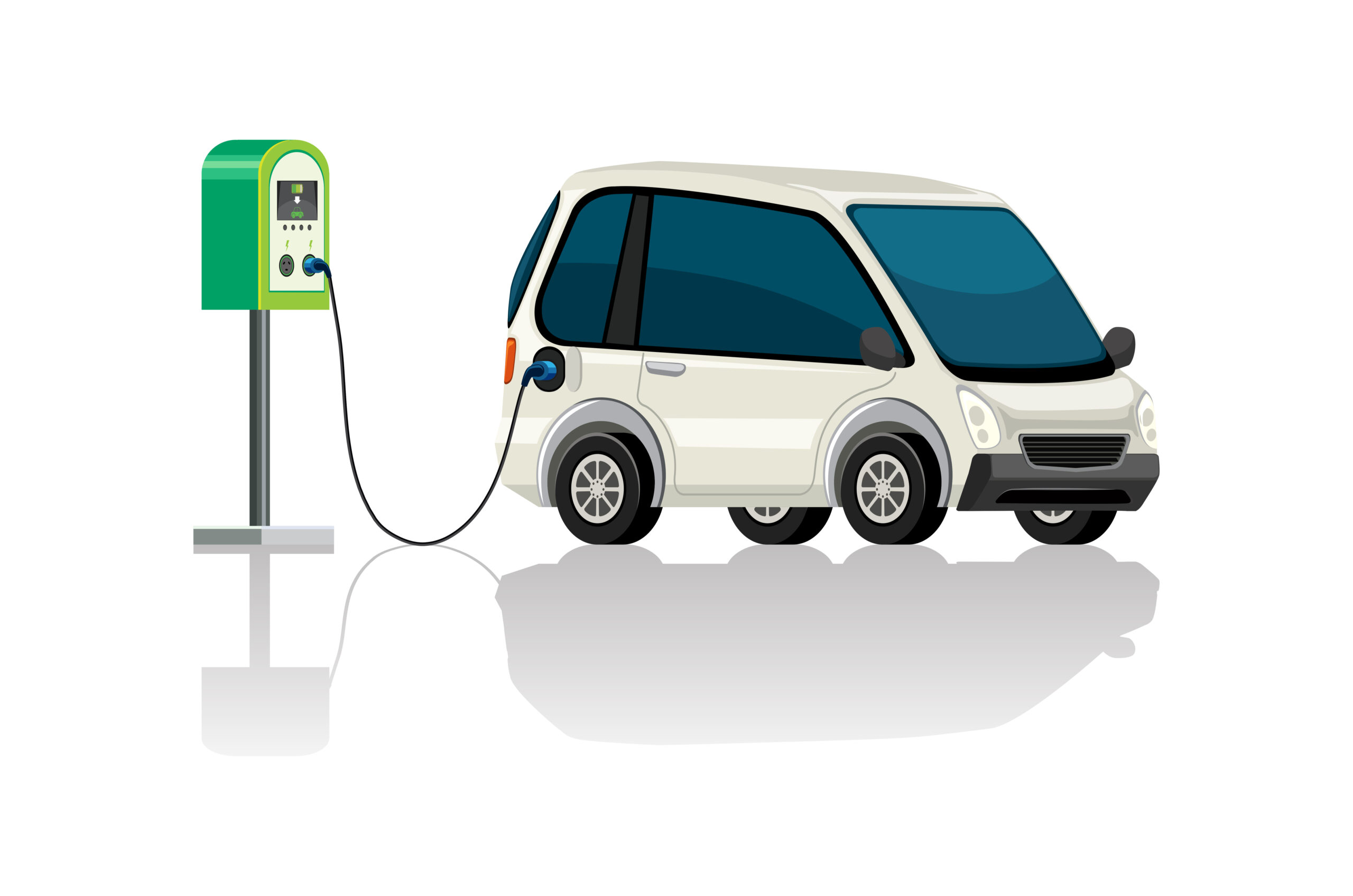
Types of Electric Vehicles
There are mainly 3 types of electric vehicles as below:-
- Battery Electric Vehicles (BEV): These are all-electric vehicles that operate purely on the electricity stored in their batteries. They have no gasoline engine and produce no pollution.
- Plug-in Hybrid Electric Vehicles (PHEV): PHEVs are vehicles that combine an electric motor with a gasoline engine. They can run on electricity for a limited time before converting to gasoline.
- Hybrid Electric Vehicles (HEVs): HEVs, while not completely electric, combine a gasoline or diesel engine and an electric motor. The engine is working on electric motor, which reduces the use of fuel and pollution.

The Advantages of Electric Vehicles
There are multiple number of advantages of EVs as below:-
- Reduced dependence on Oil: By using electric vehicles, we reduce our dependency on oil and gas, which not only decrease but also help to environmental challenges.
- Energy Efficiency: Electric vehicles use very little energy. They convert large amounts of their power supply into actual driving power and making them a cost-effective option in the long running.
- Environmental friendly: One of the most better advantages of electric vehicles is their low environmental effect. Unlike conventional automobiles, EVs emit no exhaust. This means that no harmful gases such as carbon dioxide, nitrogen oxides or particles are emitted into the atmosphere. This reduction in emissions helps in the fight against air pollution and global warming.
- Reduced Operating Costs: EVs beat cars with gas engines in terms of efficiency. They have less moving parts, which inform less upkeep and less mechanical breakdowns. Furthermore, throughout its entire lifetime, a fuel-efficient vehicle consumes less fuel.
- Silent and Smooth Ride: – Electric vehicles operate quietly, creating a silent driving experience. Without the growling of an engine, you can enjoy a smooth and silent ride, even in congested traffic.
- Incentives and Rebates: – Globally, governments and private company are promoting the use of electric vehicles by giving the benefits including tax credits, discounts.
- Technological Innovation: – The electric car business is driving technological advancement. The EV revolution is pushing limits of changes technology from enhanced battery technology to developments in self-driving.
- EV do not release any greenhouse gases or air pollution from their tailpipes, which is a considerable improvement.
- This special thing about electric vehicles is to fight against climate change and makes the clean air in cities.
- Compared to petrol or diesel engines vehicle, EVs are energy-efficient because they transfer more of the energy from the electrical system to power at the wheels.
- EVs are more popular due to their less running costs.
- Fuel costs decrease since electricity costs are often cheaper than gasoline prices.
- When you compare electric cars to regular cars, electric cars have some parts that move. Because of this, they don’t require as maximum types of repairs, which lowers the cost of maintenance.
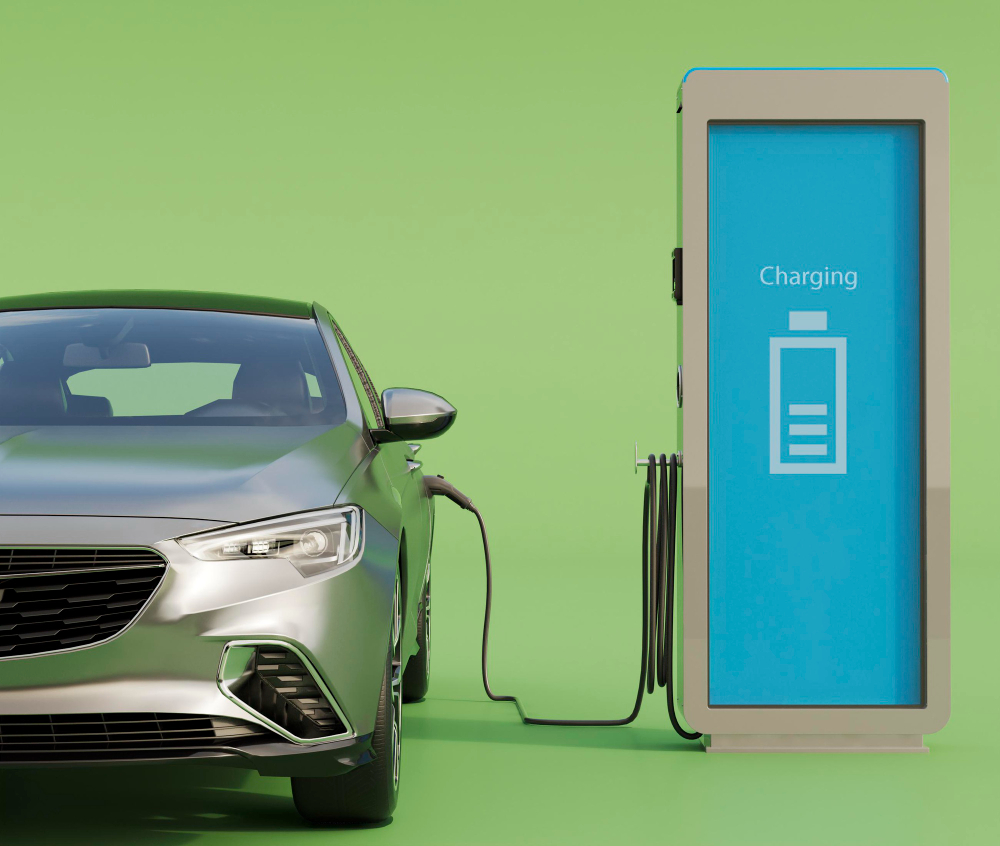
The Technological Advancements in Electric Vehicles
The technical advancements of EVs are as below:-
- Battery Technology: Lithium-ion batteries have become the industry standard for EVs. They have a high energy density, which allows for longer ranges and faster charging times. Solid-state battery development continues to offer increased energy density and safety.
- Charging Infrastructure: Extensive charging infrastructure is being constructed to handle the growing number of electric vehicles. This includes superchargers, such as those provided by Tesla Motors company, which allow EV owners to drive long distances and home charging stations, which many EV owners uses on daily basis.
The Future of Electric Vehicles
When we use electric cars, we can help to the environment, make the air cleaner, fresh and make the Earth healthier. As customers, we must educate ourselves on the advantages of EVs and consider making the advantage of our environment and our lives. So, let’s take the road less traveled and drive towards a greener, brighter tomorrow with electric vehicles.
The future of electric automobiles is bright as advances technology increases. The development in EV of more efficient, longer-range batteries, the broad charging infrastructure and the addition of renewable energy sources are all contributing to the expansion of the electric vehicle market. The conversion into an electric vehicle is a critical step toward a more environmentally friendly and strong future.
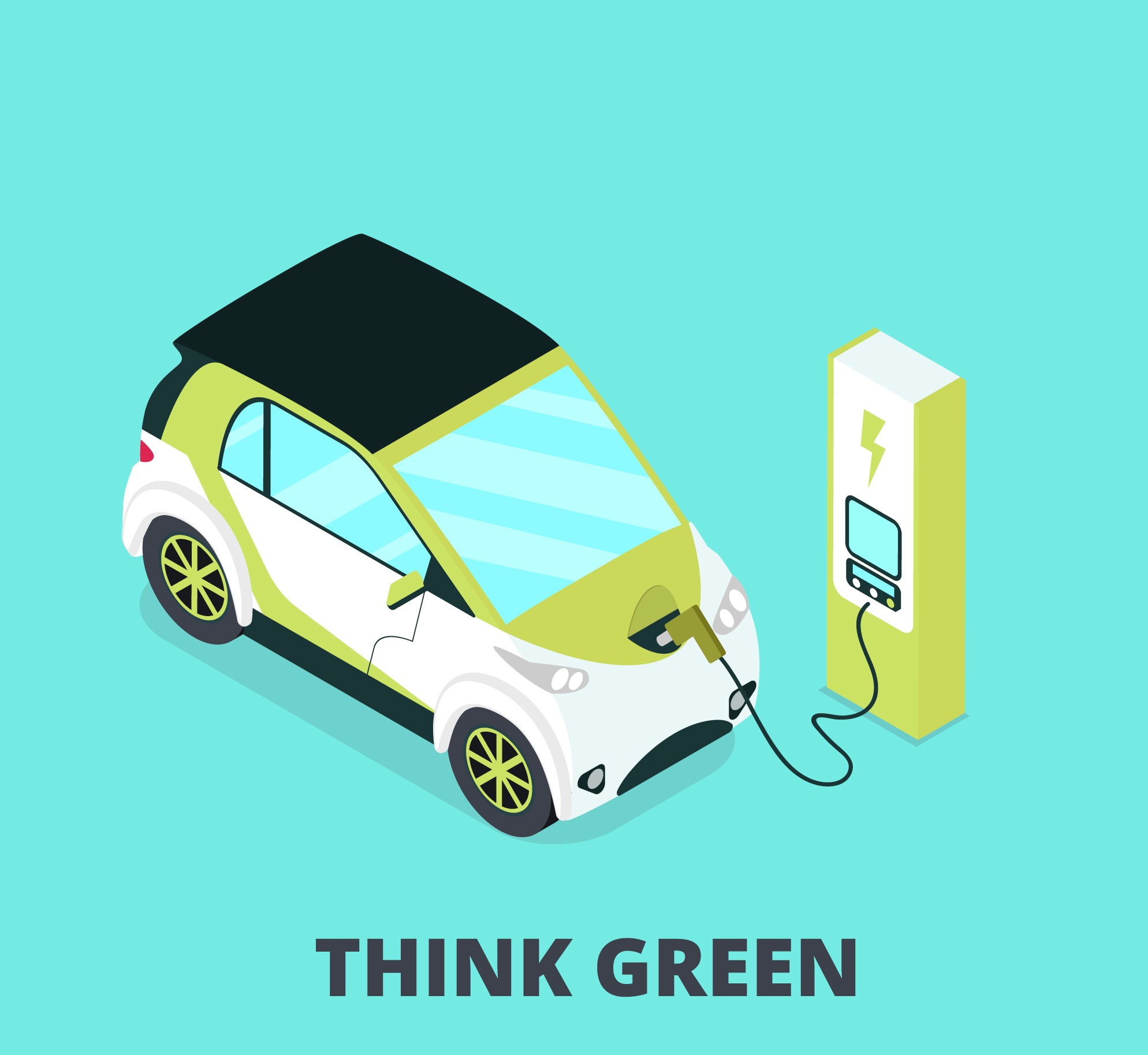
- Self-Driving Electric Vehicles: Imagine an EV driving itself while you relax. The new technology of EVs are working on Self-driving technology which has the potential to transform transportation.
- Cleaner Electricity: As our electrical system gets more environmentally friendly by incorporating more renewable energy sources, charging your EV will become even more environmentally friendly. EVs for Everyone: Automobile makers are working rapidly to make EV vehicles less costly, ensuring that they are available to a larger range of customers.
The Environmental Impact of EV
Electric vehicles are more than simply an environmentally good trend, they are a necessary step toward a cleaner, greener future. Electric vehicles are going to become an essential part of our daily lives as technology advances and charging infrastructure expands. Consider accepting the electric vehicle revolution, whether you’re an environmentalist or simply wanting to save money.
- Reduced Carbon Footprint: Electric vehicles gives to climate change by reducing carbon emissions and improving urban air quality by removing exhaust emissions.
- Noise Pollution Reduction: Electric vehicles are significantly better than gasoline vehicles, resulting in better urban areas that benefit both people and visitors.



